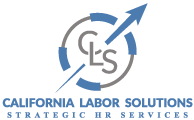If you’re a California business owner or HR manager, you likely recognize your legal responsibility to ensure employees have 30-minute meal periods* – most commonly mandated as off-duty breaks where the employee isn’t paid and doesn’t do any work. But what if your company falls into the category where “the nature of the work” prevents an employee from being relieved of all duties and therefore is granted an on-dutymeal period?
Since 1999, California Labor Code made it very clear that off-duty meal breaks needed to last for at least 30 minutes*, but many business owners have felt that the required time for on-duty meal periods was less defined. That’s now changed.
*This is a simplified interpretation the California Labor Code regarding meal periods and employee breaks. For detailed information, please visit the Department of IndustrialRelations website or contact us for a consultation.
New Clarification: The 2019 Ruling by the California Court of Appeal
On July 31, 2019, the California Court of Appeal held that on-duty meal periods are subject to the same 30-minute minimum as off-duty breaks (L’Chaim House,Inc. v. Division of Labor Standard Enforcement).
L’Chaim operates two 24-hour residential care homes for seniors in California. Due to the nature of the work, L’Chaim employees take on-duty meal breaks, during which they still may be working income capacity (such as helping residents to the bathroom, etc.). In 2016, the Division of Labor Standard Enforcement (DLSE) cited the company “for, among other things, failing to provide 30-minute meal periods under Wage Order No. 5.” The citations amounted to approximately $89,000.
Wage Order No. 5 is a specific set of regulations regarding the wages, hours, and working conditions in the public housekeeping industry. The Wage Order includes many details, but this case centered on Subdivision 11 (regarding Meal Periods). To paraphrase:
- Subdivision11(A) re-states the general meal period requirements as defined in California Labor Code 512, and then sets standards regarding“on-duty” meal periods (including when a meal period may be considered on-duty and how an employee should be paid for them).
- Subdivision11(E) specifically discusses on-duty meal periods for employees of 24-hour residential care facilities – including that one of two additional conditions must be met (the employee eats with residents or there is only one caregiver on staff at a time).
L’Chaim argued “that the on-duty meal breaks authorized by subdivision 11(E) of Wage Order No. 5 do not need to be least 30 minutes long.” The courts and DLSE both conceded that L’Chaim employees were eligible for on-duty meal periods, but the Court rejected the company’s interpretation of the Wage Order. “L’Chaim’s claim that it does not have to provide on-duty meal periods that are 30 minutes long rests on a fundamental misreading of subdivision 11 of Wage Order No. 5,” the Court stated. “What L’Chaim misunderstands is that an on-duty meal period is not the functional equivalent of no meal period at all. On-duty meal periods are an intermediate category requiring more of employees than off-duty meal periods but less of employees than their normal work.”
What’s This Mean for Businesses that Require On-Duty Meal Periods?
This means there’s much more clarity for California business owners who are eligible to offer employees on-duty meal periods. When assessing whether your on-duty meal period policies are compliant, here’s the general rule of thumb:
While an employee may not have 30 minutes of uninterrupted time, they should have at least 30 minutes to eat in “relative peace.”
In other words, employees should have the opportunity to eat a nutritious meal without feeling rushed, and if they feel pressured to jump up immediately after swallowing their last bite, then it’s likely you’re not in-compliance with state employment laws.
Explore our blog for related articles, such as Don’t Get Sued! Are You Compliant with CA’s Pay Stub Requirements?
Are You Compliant? California Labor Solutions Can Assess Your Current Policies.
California Labor Solutions LLC (CLS) is a different kind of human resources consulting firm. Our “scalable services model” ensures Comprehensive HR Solutions are accessible even if clients have small business budgets. We saw too many small and medium-sized businesses fall victim to unrecognized (yet easily solved) risk factors, so it became our mission to deliver our large-firm expertise to clients of all sizes.
Our HR Consulting Services include: HR Outsourcing, Regulatory Compliance Solutions, and Supplemental HR Support (for in-house teams).
Additionally, we offer Training & Professional Development, and Workplace Investigations.

